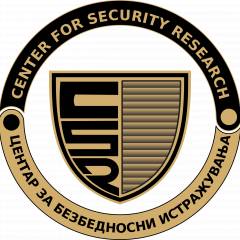
What started in 2011 as a popular uprising against the Syrian regime escalated into an all-out war that engulfed both Syria and Iraq, drew in a suite of regional actors and world powers, and attracted an unprecedented number of volunteer combatants from more than a hundred countries.
Among those countries are many of the nations in the Western Balkans, from which more than a thousand nationals of Albania, Bosnia and Herzegovina, Kosovo, N. Macedonia, Montenegro and Serbia are estimated to have travelled to the battlefields of Syria and Iraq since 2012. The significance of this number becomes apparent when you consider the context of the combined population across these small countries, a total population of less than nineteen million. The rates of volunteer mobilisation relative to the population size of the Western Balkans nations are far higher than any other in western European afflicted by volunteer fighters and terrorists.
Naturally, this has translated into the Western Balkans being currently the region with the highest concentration of returned foreign fighters in Europe. Of the 485 returnees from Syria and Iraq so far, two thirds are adult males likely to have been actively or indirectly involved in either, or both, “military” and terrorist activities.
The disproportionality between the volume of returnees and the means available for dealing with them represents a long-term challenge for the Western Balkans with potential security implications that transcend the region.
Like in the case of those leaving, the distribution of returnees is heavily concentrated into clear geographic locations with chronic socioeconomic and political vulnerabilities and active jihadi recruitment networks. By the end of 2019, Kosovo and N. Macedonia accounted for two thirds of the region’s returnees. Kosovo, for example, had a reported 134 returnees per million nationals. By comparison, the United Kingdom, France, and Germany — some of the countries with the highest mobilisation numbers in Europe — have only received between four and six returnees per million.
The return of foreign terrorist fighters from Iraq and Syria is an area of increasing concern for the international community, because some of these returnees have committed violent acts, incited others to engage in terrorist activities, and have taken part in recruitment and fundraising efforts for the terrorist organisations that they had joined.
Some of the latest arrests in N. Macedonia on terrorism charges included suspects who were returnees from IS, such as one in September 2020, when three alleged Islamic State sympathisers and returnees from Middle East conflict zones were arrested. During that arrest the police seized a cache of explosives and weapons that are suspected of having been planned for use in terrorist attacks. Less than a month ago, the police detained eight men on suspicion of planning terrorist attacks in the name of IS, and acknowledged that one of the suspects had a previous conviction for being involved in IS activities.
These latest examples show that the task of managing the security challenge associated with the return of foreign terrorist fighters is very serious. Effective strategies are needed for their de-radicalisation, rehabilitation and reintegration into society. The West must take note of and be more prepared for the continued long-term effects of the Syrian war.
This article was originally published for Conservatives Global.


